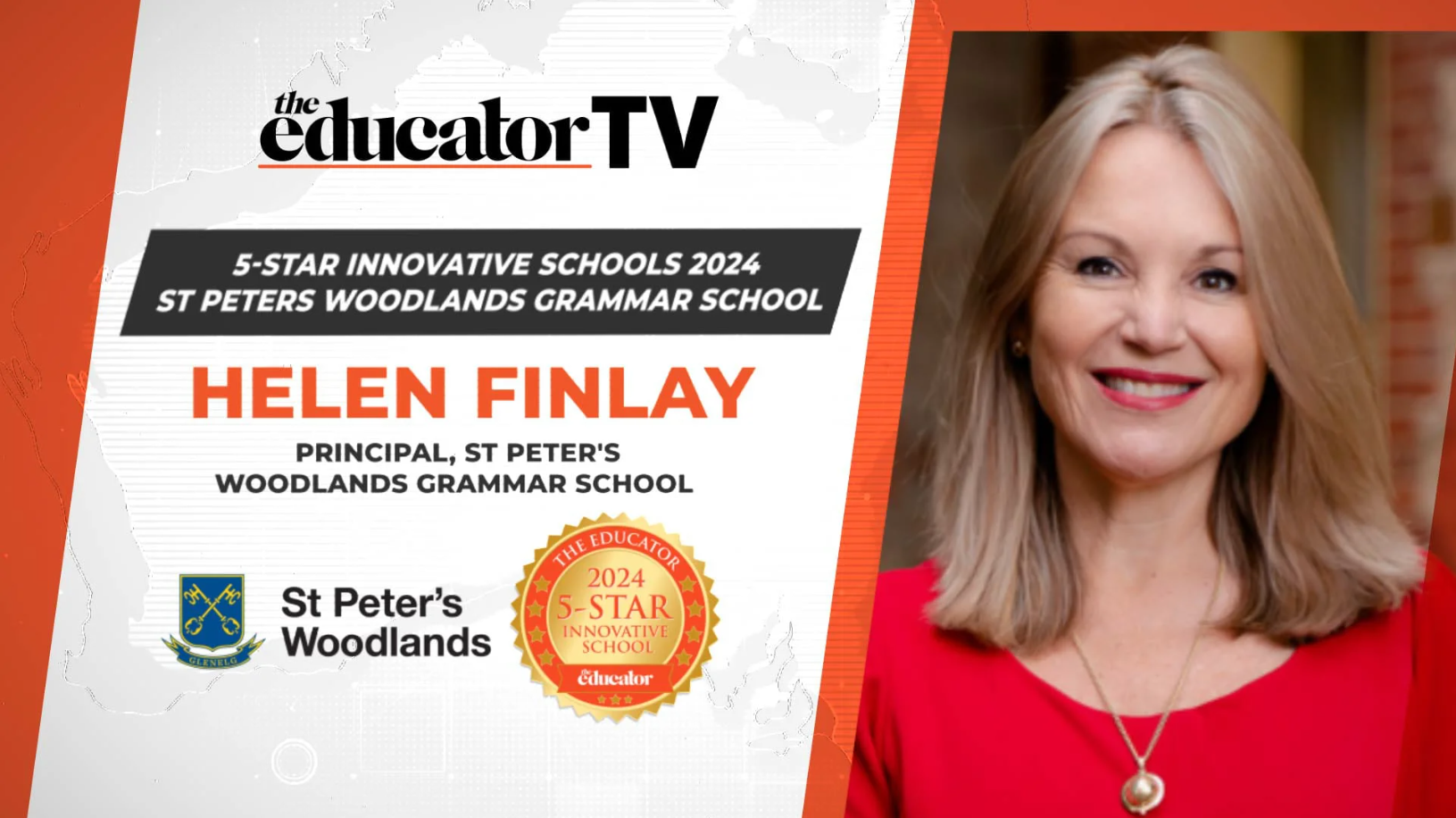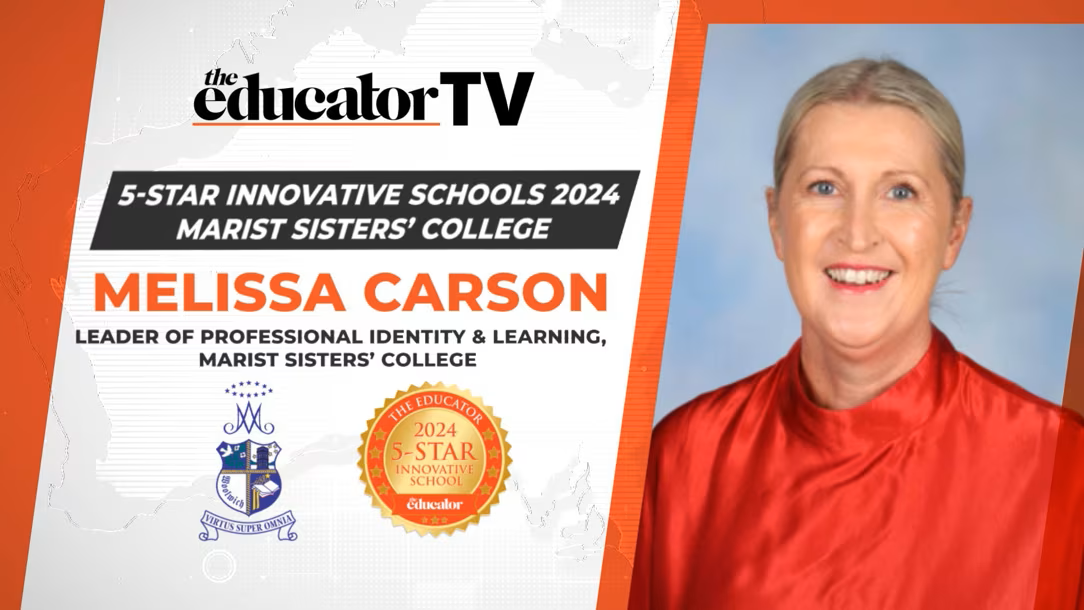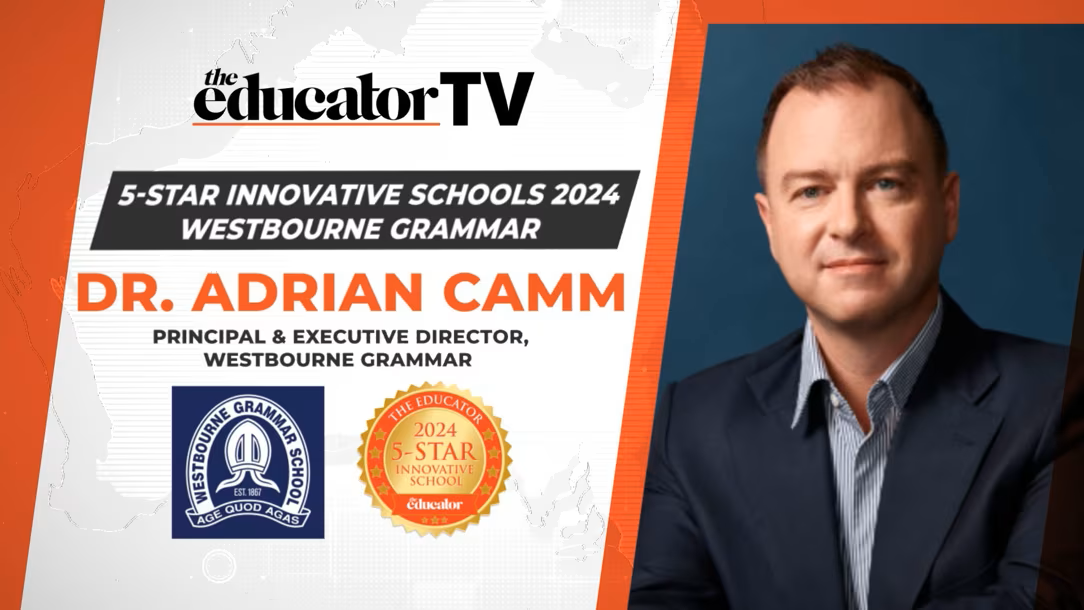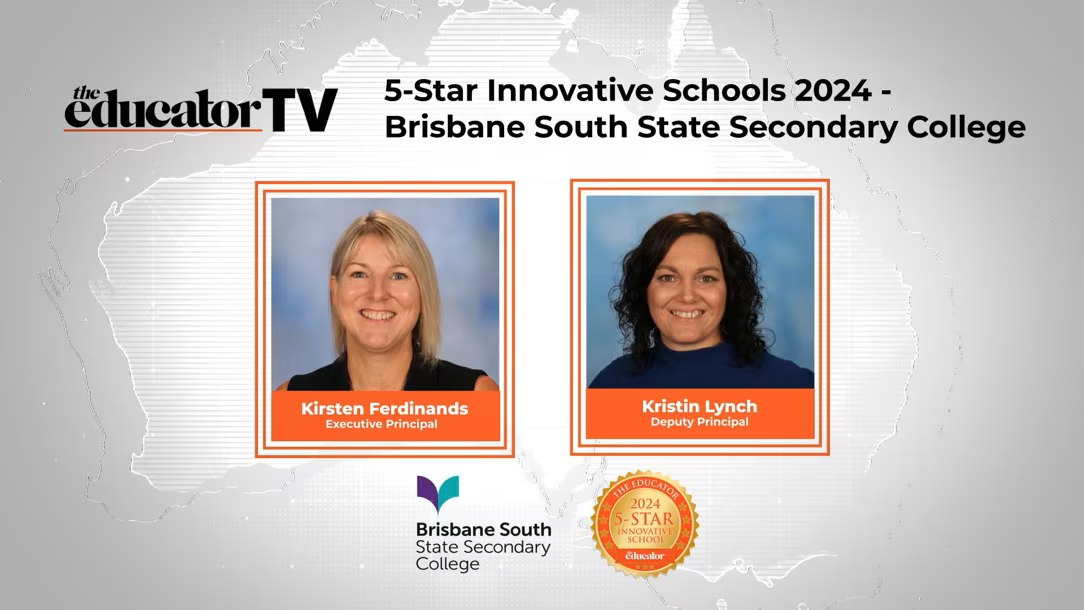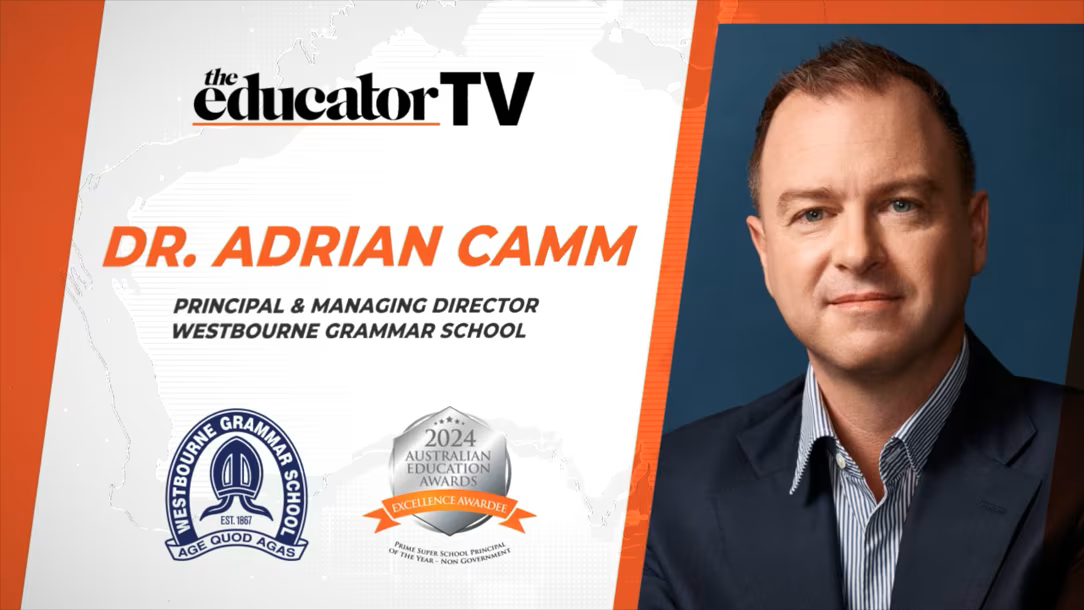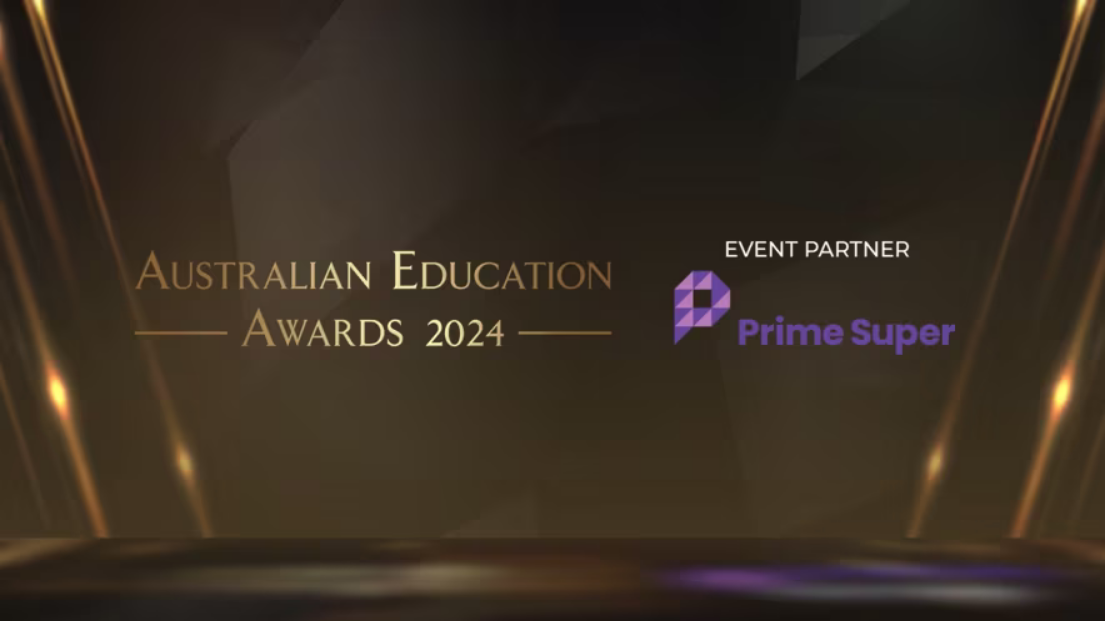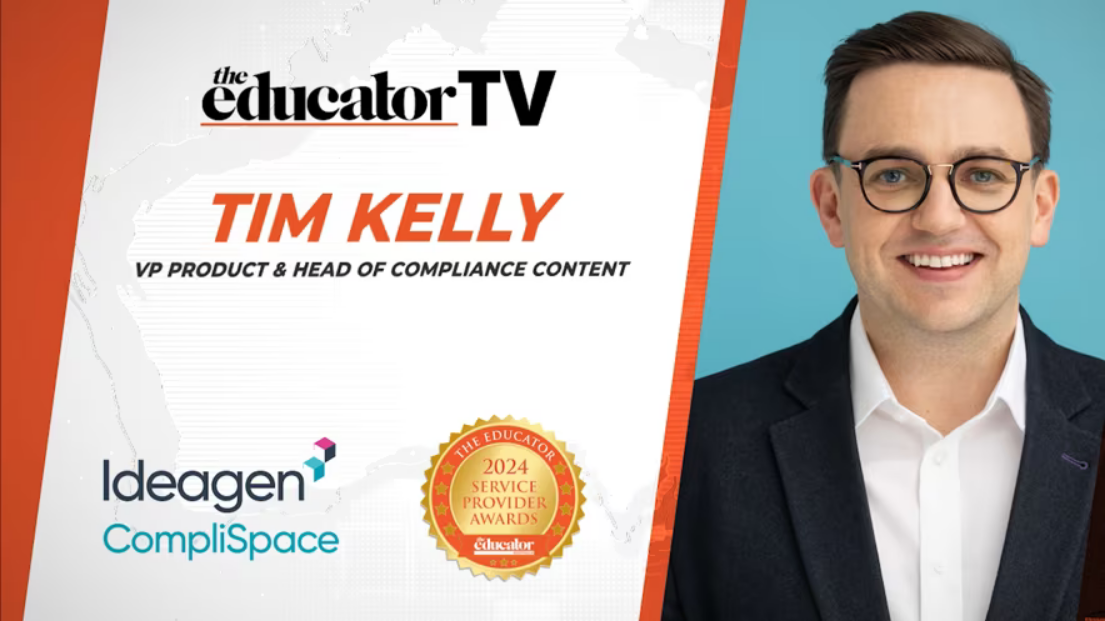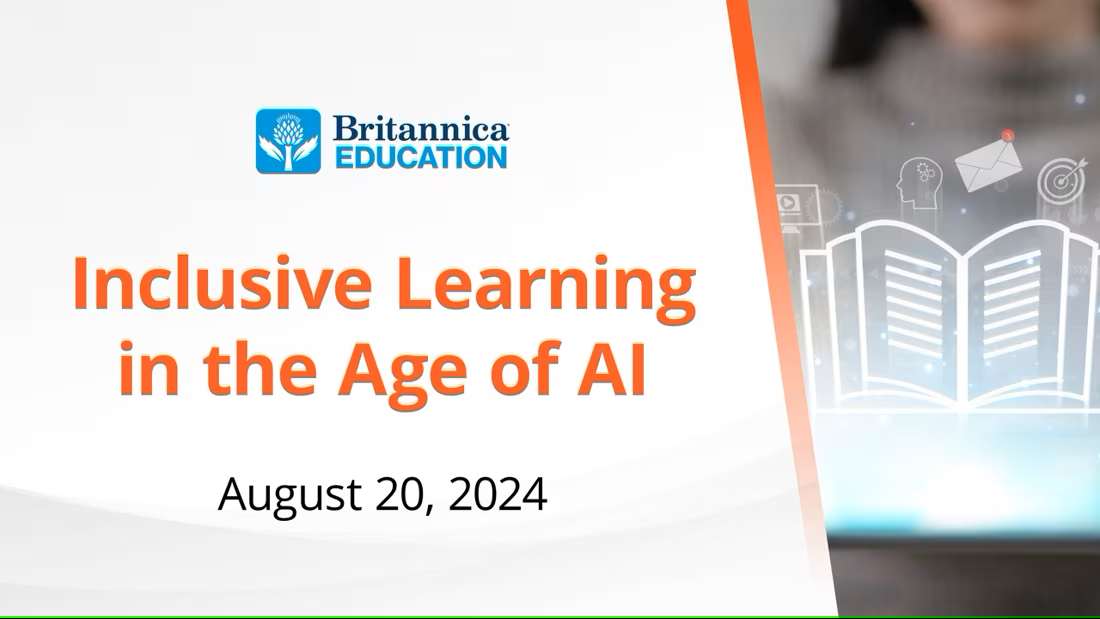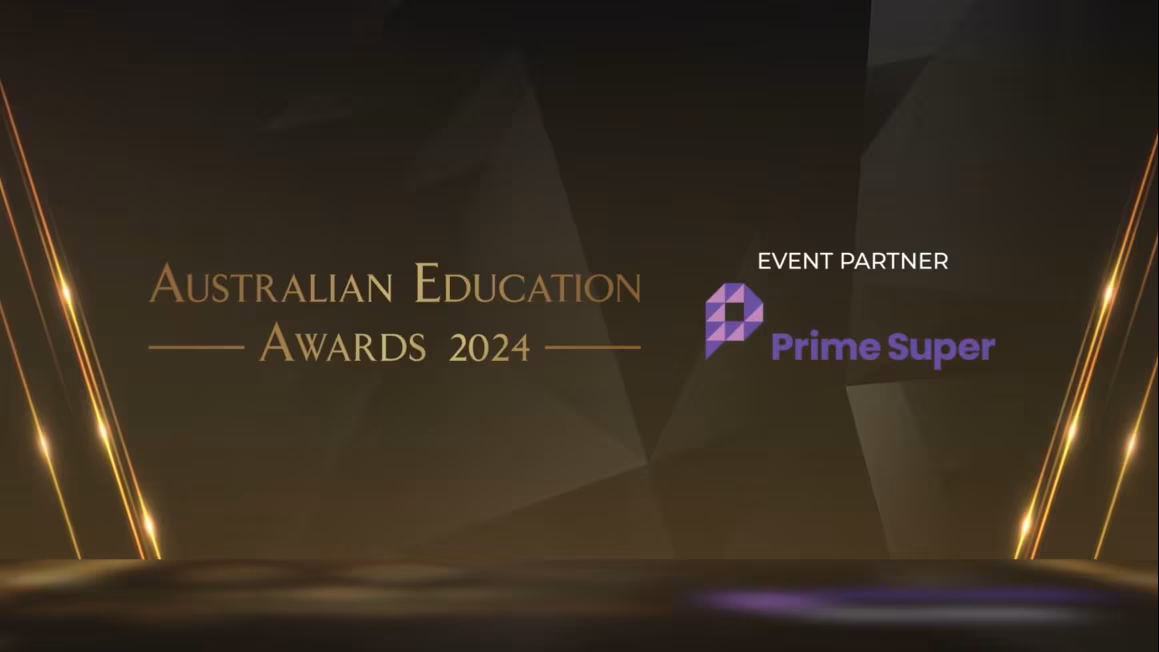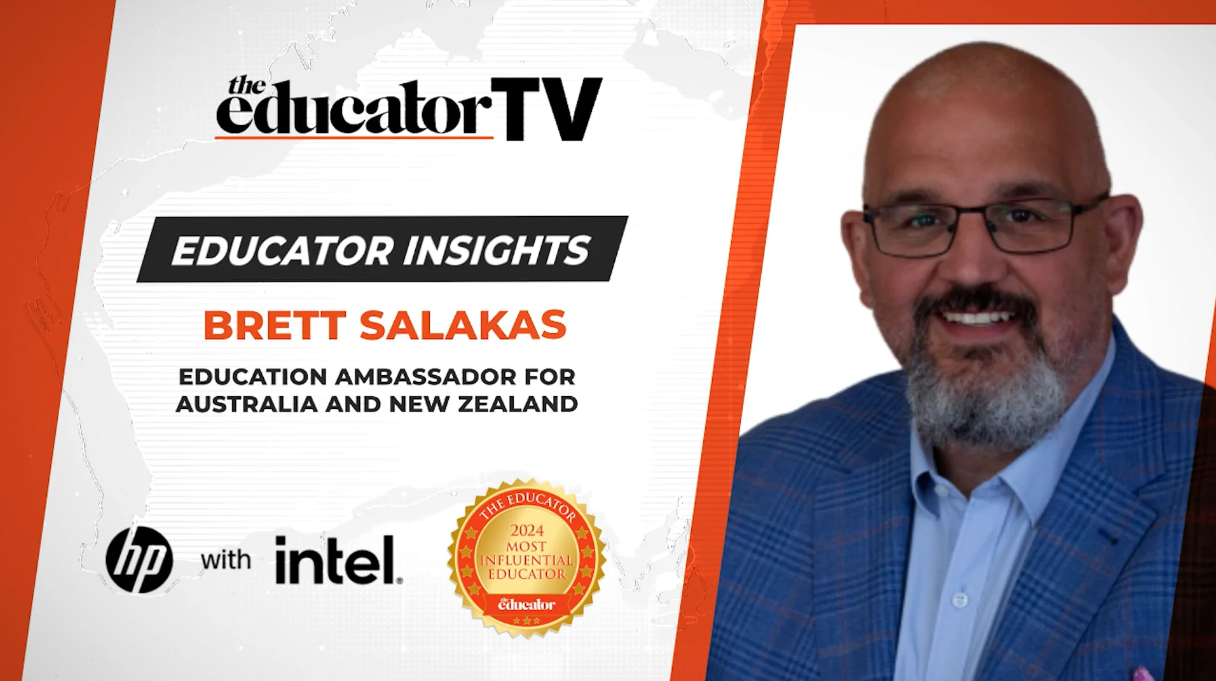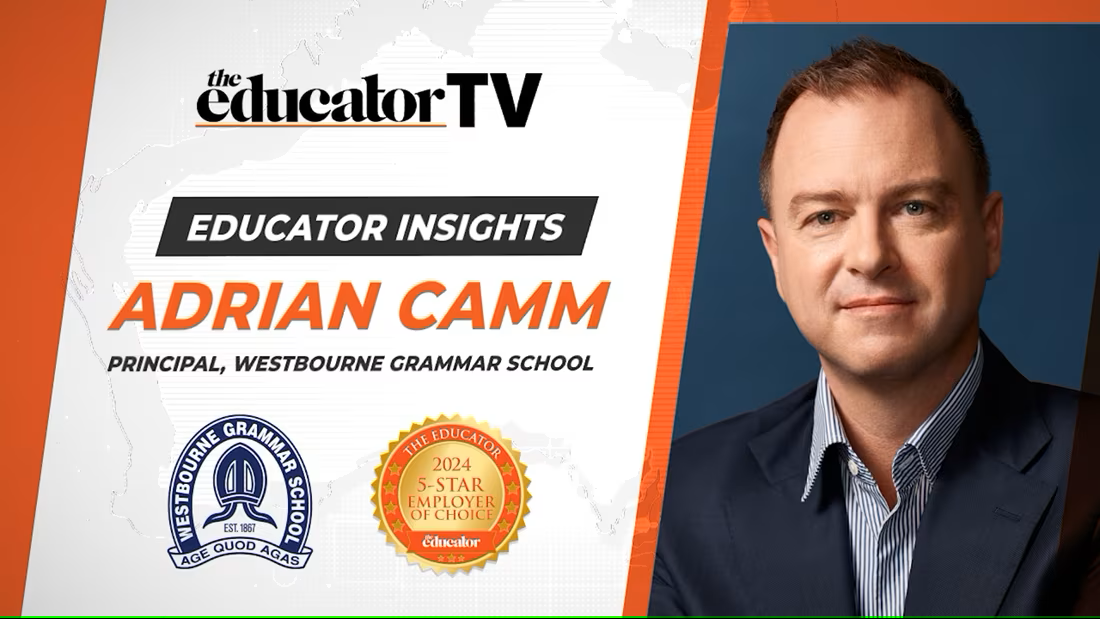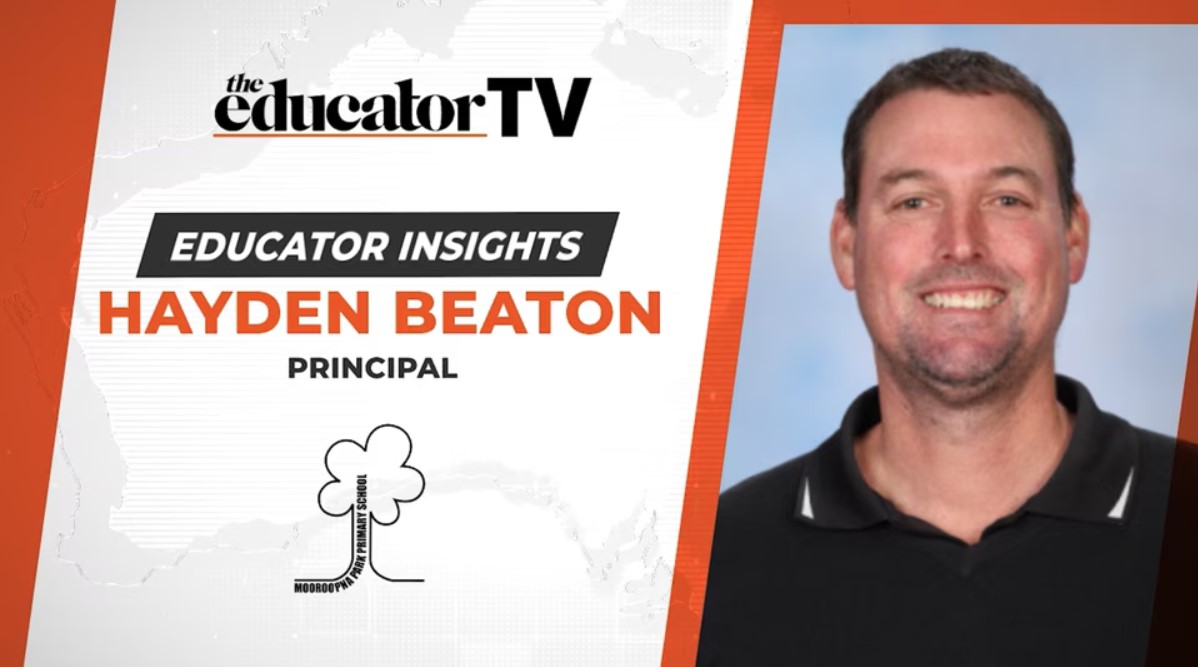Shaping the future with happy, holistic learners
At Golden Grove Lutheran Primary, Principal Will Wallace emphasises the importance of happiness, broad learning opportunities, and community engagement to foster well-rounded individuals.
To view full transcript, please click here
Kylie Speer [00:00:07] Hello and welcome to The Educator TV. I'm Kylie Speer. Thank you for joining us for Educator Insights, our inspirational education leadership series that takes a deep dive into the current state of education in Australia. Joining me today is Will Wallace, Principal at Golden Grove Lutheran Primary School. Will boasts over two decades of experience in education and school leadership spanning primary middle school and secondary education. Will's educational background encompasses degrees in education, business administration and theology, and his contributions to the field of education have earned him recognition as a fellow of the Independent Primary School Heads Association of Australia and a fellow of the Teachers Guild of New South Wales. Welcome to you Will, it's great to have you on the show.
Will Wallace [00:01:00] Likewise, it's fantastic to join you, Kylie, and a pleasure to be with you today.
Kylie Speer [00:01:04] Well, firstly will in your role and career as principal, what are you most passionate about?
Will Wallace [00:01:11] Absolutely, it's the happy students and it comes back to being able to see the children smiling as they arrive at school. And as you're in the school during the day, seeing the children striving and enjoying their learning in the classrooms, their friendships and activities in the playground, just keeps it all very, very real, which is fantastic. Obviously very, very passionate about providing a broad range of opportunities for children, to really discover and explore and develop their strengths, the talents they have the passions they may not know, and they have no one they had before they tried something out, and giving them a broad range of cultural activities, Music and Performing Arts sport, debating public speaking, just to name a few of those different avenues that we strive really hard to open up for children. Absolutely love seeing children grow as people as a result of quality teaching and learning that helps them to achieve academic outcomes. But of course, they're to improve their well being and enhance their spiritual growth to and with the bigger picture of being a school principal, absolutely loves seeing the school community thriving and being engaged with the broader local and national and international community through a range of connections, and just saying that connect the best and deep relationships between the school and families to achieve the best outcomes that we can have children.
Kylie Speer [00:02:37] The education landscape in Australia is transforming rapidly. Can you talk us through the changes you're most affected by and how you're approaching their adoption?
Will Wallace [00:02:47] It certainly is changing dramatically. And one of the things that I've seen changed in the last 10 to 20 years, is a much stronger emphasis that we had seen on critical and creative thinking, cross curricular perspectives in the curriculum, and particularly building those learner capacities and attributes that children need for that future world that they're going into that is just constantly evolving and changing. Being an IB school. We're very passionate about building up those IB attributes that children need that really fit in with that transformation that we're seeing in the education landscape. So building our students offers inquirers, knowledgeable being thinkers, communicators, principled, open minded, being caring and empathetic towards others being risk takers and balanced with their learning, being reflective, but also building up that student agency and giving children that opportunity to be a part of their learning contributes to their learning, be a part of the school community and actively contribute to and shape where it looks like. It's just absolutely brilliant to see that coming in more and more into education. And of course, he we've got a much broader focus on well being and the whole child. And we're very fortunate that South Australian education enables us to provide a balanced approach where we really focusing on positive education, and building children Arthur's optimistic, confident, flourishing learners that have great hope and resilience for the future. And of course, being a Lutheran School, we've got that Christian ethos, too. We're increasingly seeing the same trends in the Australian census, where, while there are less individuals identifying as a particular religion, there's the same number of individuals that are really searching for a spirituality and we provide great values and a Christian message that really meets that need, that families love about our community.
Kylie Speer [00:04:54] Well, as you've already touched on health and well being and diversity and inclusion practices, have never been as top of mind and vital as they are right now. How does Golden Grove Lutheran Primary School approach this area with your students?
Will Wallace [00:05:09] We're delighted to become one of the first standalone primary schools and South Australia's who have become a positive education still, we're one of the first schools to establish your well being have that was stopped all time by a qualified school counselor with a background in psychology, as well as being supported by an outstanding school chaplain, to really look after the needs of our students and the fairways and staff team. We've had a real focus on synchronizing with external supports that are available for students as well, and having our well being team and that well being hub space, working collaboratively with external occupational therapists, speech therapists and psychologists to really get that alignment with supporting children, but also to really bring that evidence based practice into classrooms as well, where we, where we have curriculum based programs, and a range of co curricular programs that are all geared towards building the resilience, the hope that optimism and the skills that students need in that space to thrive today and into the future. We've got a really innovative program called Golden Time that enables students to choose different electives on a weekly basis where they can explore different areas of talent and practice and interest and connect with local community members and staff that have a certain passion in a different area. But also have done some really innovative work in partnering with to Katie Arno in New Zealand. They provide real time engagement sliders, that's all of our students can use to provide feedback on their engagement in learning. And we're looking at a range of other tools, including the Cambridge tools to get real time feedback on student well being as well. Rather than doing an annual survey and getting that data. We want to get that data about learning engagement, well being in real time as part of our positive education, focus.
Kylie Speer [00:07:11] Brilliant. Let's move on to technology and the topic of AI, which is an increasingly complex one, what are your thoughts on how to best work with this technology going forward
Will Wallace [00:07:23] There's an absolute technological change that we're experiencing that is exponential. And one of the best descriptions of this I heard at a conference a couple of years ago. And it was analogy about Sydney Harbour that if you started building a century ago, I'm filling in a century ago with buckets of water, and kept on doubling the number of buckets of water by I think, 2030, the example was, you'd actually have Sydney Harbour overflowing, but back at the beginning and see not very much water at all. And that's an analogy for just that pace of technological change, that's doubling and tripling exponentially. We're certainly really passionate about embracing new technologies with the efficiencies that they can bring us, but also wanting to balance the use of those or engagement with those with the critical and creative thinking skills that we're developing in students as well. We want them to be able to analyze and evaluate new and emerging technologies to see what their productive and constructive use can be. But we also want to build up those skills that students have where they can analyze information and synthesize and evaluate a presenter on their own to and have that independence in their thinking. So they use it well as a tool, but not necessarily be driven by it. But certainly, we know that so many of the occupations and the skills that our graduate graduates need gotta be based in this technology, and they gotta be going into jobs that haven't even been thought of yet. That's the pace of technological change. So it's certainly something that we want to embrace as well, and have children that have the skill set to be future ready. Dylan William spoke about this, at a conference I attended some years ago as well, that concept of we want to build up in our students, those capacity for those higher level tasks because of the impact of technology. So much of children's thinking skills are going to be based around that analysis and things synth so that analysis and synthesis and evaluation of data in a global economy rather than those low level tasks. The other saying of course, is give a man a fish and feed him for a day but teach him how to fish and feed him for a lifetime. And that's what we're about in embracing technological change in a thoughtful manner, as well so that we can build up students capacity to be agile to thrive and the change and uncertainty that development and growth in technology and evolution in technology brings. And we want our learners to be not just resilient, but to be able to benefit from that change and disruption and become stronger and more adaptable in the face of that change in our times adversity that it brings.
Kylie Speer [00:10:26] Oh, great points. With so much on your plate, How can teachers and principals be best supported by relevant stakeholders to ensure you're adequately equipped to do your job?
Will Wallace [00:10:39] We are really fortunate and blessed here at Golden Grove Lutheran to have an outstanding school board and outstanding school chair that understands the work that not just the principal and the school leadership team do but all of our staff within the school, and have a good understanding of what the changes are in education and how their environments emerging. So very, very blessed to have support from a governance perspective, but more broadly and awesome parent community, particularly as we've transitioned out of COVID, and all of the impacts of that has had, our parents have demonstrated such a strong appreciation for the work of teachers and teachers aides as a broader community. And that's been a credible support in being able to fulfill our roles and have that support and be equipped to do our job as an effective school. So it's been a real blessing that our school community has been able to see and appreciate all of our team, doing things like transitioning with COVID, through the lock downs into a very seamless and rapid transition into online learning, but also seeing the work that has gone into providing and sustaining pastoral care and well being support for students and our families, as well. And that's built incredibly strong sense of appreciation, right across our school community.
Kylie Speer [00:12:03] And finally, will what's your number one recommendation or request right now to affect positive change in education?
Will Wallace [00:12:11] Globally, I've got four. And the first one is looking at that plan. And I really urge federal and state governments to adopt the recommendations that have come out of the recent NAPLAN reporting revenues. And to achieve a better balance between using data to support students and still include mode, as well as recognizing that the initial intent based systems was as a diagnostic rather like imperative to further modifying the NAPLAN tool to provide for more effective and appropriate access for students with learning needs would be brilliant to see, as well as a recognition that a school is so much more than a set of NAPLAN results. It's so much more than colors on the Meister website. It's about who the students are and who they become the opportunities that we provide for them, the bacon embrace the way they need shooting grow as individuals and skill so about the community that we build with families and the way that we value and nurture our amazing staff teams. And that's not just something that you can see you show a snapshot, that window of one assessment on one day. I've got to I see in so many lessons to learn earlier in Australian education wrote about some of these concepts right back in the 1970s. He spoke about the stratification of Australian education, part of which was seeing standardized test results that would make the socio economic status of a school. And I'm not sure that much has changed in that space since then. He also talked about access for Aboriginal students, not just to these assessments in a way that reflects cultural backgrounds. And the other segues I'd talk about multiculturalism there because we're an increasingly diverse and multicultural society. In this school, we have over 40 different nationalities represented. With over 25% of our learners speaking English as a second language, it will be great to see increasing work go into the accessibility of education more broadly for our Aboriginal and Maori cultural learners. But also, I'm particularly passionate about equitable resourcing for Aboriginal learning communities, particularly those in regional and remote areas. And more broadly, let's have equitable funding across all sectors and the full implementation of Gonski. Finally, I'd encourage policymakers in the education space to continue to talk to the teachers aides would still leave with children most importantly, and families and the stable aren't really connected. We're very nice and simple Australians have a state education minister, a boy who keeps in touch with schools as a very balanced perspective on things and is building so amazing initiatives around student well being and support for students. And we're really lucky to have a Lutheran regional office that stays in touch with us very effectively as well and resource and say, our Lutheran schools sectors very strongly. And the last thing I'd say too, is let's keep building up our professional networks as well and providing support for those I've been very blessed with being a member of the independent Primary School Heads Association. As one example for many, many years. It's provided in the valuable sense of collegial support for my role and my professional growth. And I'd love to see work continue to go into building up those professional associations for that collective collegiality and growth for education educators in a range of different roles.
Kylie Speer [00:16:06] My record up until this moment was two recommendations or requests so far is great.
Will Wallace [00:16:12] Well, yeah, I had to take the opportunity to put those ones out there because they're things I'm very passionate about.
Kylie Speer [00:16:20] Rightfully so. Well, thank you so much, once again, for your time today Will, it was great speaking with you.
Will Wallace [00:16:27] And thank you so much, Kylie. It's been an absolute pleasure to share with you as well.
Kylie Speer [00:16:32] And thank you to our viewers for watching the latest episode of Educator Insights. We look forward to seeing you again soon.



